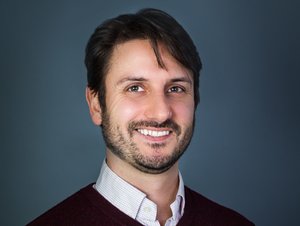Plain and simple, there's no better place for entrepreneurs to look for advice than from other entrepreneurs. Looking to someone who's been in your shoes before is the best way to expand your understanding of your struggles in founding a startup and hurdle over them. Sometimes though, access to those experienced and knowledgeable founders is not as easy as it might seem. Thus, InTheCapital brings you "Ask A founder," posing questions to startup founders big and small on how they got to where they are.
James Li co-founded Encore, a real-time social insights platform to help brands identify the key conversations of users' social engagement, in 2011 still a student at Georgetown University. Working in social consulting in the D.C. area at the time, Li, with co-founders Tammy Cho and Felipe Lopes, decided it was too hard to manage and do anything actionable with social media, especially for huge brands. Thus the genesis of the software as a service (SaaS) that automatically takes all of the social media about a brand, digests it with advanced algorithms in real-time, turns it into insights and then delivers it to users in email or mobile recommendations to best maximize on that moment. It's a 21st century marketer's dream.
But getting Encore to where it is today wasn't a breeze for Li and the team. As a student and an active entrepreneur, balancing his life, getting people to take him seriously as a student and getting his product to be what he envisioned took years of struggle and dedication that any entrepreneur can learn from. Here's what he as a founder had to say:
What comes first: the entrepreneur or the student?
"It was tough; it’s definitely a balance of time. It’s very hard to focus on all these different things and do them effectively. The attitude I’ve always taken, and the same with my co-founders, is that we’re entrepreneurs that happen to be students, and not the other way around. A lot of people when they say student-entrepreneur, they think of someone who is working hard on homework and then does the rest when they have free time. I think what we tried to do is flip it around – take our classes and apply it to the real world.
"You have a risk of not being taking seriously. But the way we tried to overcome that is to flip that weakness into a strength. When we started off consulting, people said, ‘What are these 19 and 20 year olds doing trying to charge me money?’ But if we could flip our social media usage as millennials into a strength then people were much more likely to listen to us.
Universities are great places to take risks
"Being a student was the perfect time to start a company given the fact that we had a safety net: you had a place to sleep, you had a cafeteria to eat in and you had a lot of students who were willing to collaborate with you and work with you. I don’t think entrepreneurship is for everyone. But I think the key is that every student comes into a school like Georgetown with something they’re passionate about. I hate to see them throw away that passion to go pursue a very traditional career path without trying to do anything with that. We have friends who are interested in all kinds of different things, and they come to the business school and they suddenly fall into a trap. And you can’t blame them because the system has been set up that way. Personally, for me, I learned so much working on a startup than I did in any of my classes.
"I think a lot of students are intimidated by this idea of starting a company – that it’s all about incorporation, printing business cards, coming up with a good domain name and all these different things. At the end of the day it’s as easy as maybe trying to talk to some customers and getting that momentum going of what your first sale and your first product might be. If you’re selling cookies – you need to make your first batch and you need to go sell it."
Keep your sight set on what you really want.
"One of the biggest struggles was when we got into Acceleprise and we were looking to pivot and think about the larger market, just the uncertainty of not knowing what your company is going to do. Going to different startup events and having people go, ‘Hey. What does Encore do?’ And not knowing how to answer that is an extremely weird situation to be in. There was a period of time where there were a lot of late nights that our team would be sitting in the Acceleprise office scratching our heads. And then balancing that with what are we truly passionate about? And what do we really want to do with the next 5-10 years? The three of us were together, we liked each other, but we had no idea what we were working on. Finding that solidarity and chasing a single thing, but not knowing what that thing was. That was a challenge. And at the end of the day, I think we just had to go and talk to a lot of customers. We finally came back with what we’re working on now and you could just see the gleam in their eyes as they were like, ‘Wow. This could make my life a lot easier.’ The process getting there, though, as an entrepreneur was one of the most painful things."




